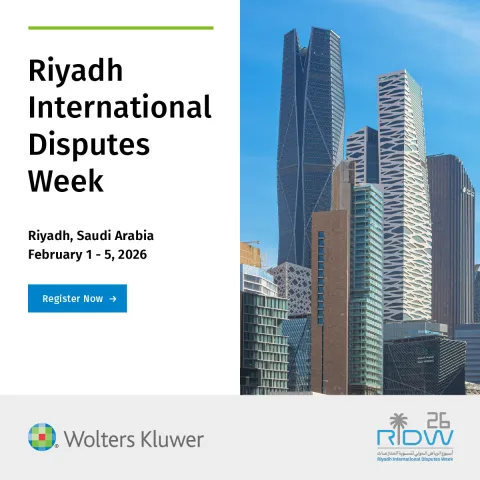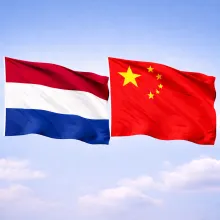Extra Petita and Ultra Petita as Grounds for Setting Aside International Commercial Arbitration Awards: A Critical View of the Chilean Case Law
November 24, 2025
In most jurisdictions, annulment of international commercial arbitration awards is an exceptional relief, subject to strict grounds set forth in the relevant legislation. Such awards are presumed valid and final, thereby producing res judicata effects. To this extent, domestic courts at the seat of arbitration normally abide by the principles of finality and minimum intervention, thus granting significant deference to international arbitral tribunals. This approach appears sound.
However, as arbitrators are human, awards may indeed present effective grounds for annulment. A jurisdiction that allows flawed awards without effective control endangers recognition and enforcement elsewhere, compromising its reputation as a reliable seat of arbitration in the long run.
In this context, it is widely recognised that an award may be set aside if the arbitral tribunal exceeds its authority. For instance, this ground for annulment can be found in Article 34(2)(a)(iii) of the UNCITRAL Model Law on International Commercial Arbitration (“Model Law”), in Section 68(2)(b) of the English Arbitration Act 1996 (recently amended in 2025), and in Section 10(a)(4) of the U.S. Federal Arbitration Act, among many other arbitration acts.
As Gary Born notes in his treatise, a clear example of excess of authority is where the arbitral tribunal decides upon relief or issues that none of the parties requested, ruling extra petita or ultra petita (see International Commercial Arbitration, 3rd ed., Wolters Kluwer, 2021, pp. 3577 et. seq.). Therefore, whether an award decides on a point of fact or law that was not submitted by the parties, it could be set aside by domestic courts.
Against this backdrop, the Chilean case law shows an interesting approach.
Chilean Approach to Extra Petita or Ultra Petita Allegations in Set Aside Proceedings
The Law No. 19,971 on International Commercial Arbitration (“LACI”)—which mirrors the UNCITRAL Model Law (1985)—has recently turned 20 years old. Nevertheless, no international award has ever been set aside by Chilean Courts, as previously noted on this Blog.
In some of these cases, applicants argued that the arbitral tribunal ruled extra petita or ultra petita. However, such petitions have been dismissed for various reasons, reassuring that the application to set aside international commercial arbitration awards is exceptional in Chile, under the LACI. Two cases might prove helpful to illustrate this point.
Profine Iberia S.A.U. v. Ventanas Tecnológicas Kömmerling S.A. & Or. (Case No. 10949-2024).
In a nutshell, Profine Iberia S.A.U. (“Profine”) and Ventanas Tecnológicas Kömmerling S.A. (“Ventanas”) entered into a concession contract for the sale of PVC profile windows in Chile. Hispano Chilena de Inversiones S.A. (“Hispano”) signed as Ventana’s guarantor.
In 2021, a dispute arose concerning alleged breaches of contract. Profine submitted a request for arbitration before the Spanish Court of Arbitration and a subsequent claim before the appointed arbitrator. Ventanas and Hispano responded, filing a counterclaim against Profine.
Profine sought declaratory relief regarding Ventana’s alleged breach of contract and its purported lawful termination, as well as compensation for damages, and payments for different concepts. On the other hand, the defendants sought the claim’s rejection and the counterclaim admission, with a declaration that Profine is the one who breached the contract, and thus, compensation for damages was requested.
The parties appointed a single arbitrator to be seated in Santiago, Chile, who entertained the case under the Madrid International Arbitration Center (“CIAM”) procedural rules, and the LACI as lex arbitri.
In 2024, the sole arbitrator rendered its final award partially upholding both Profine’s claim and the defendants’ counterclaim. Among other issues, the award decided that the contract had terminated de facto.
Profine filed an application to set aside the award before the Santiago Court of Appeals. The applicant argued—with other allegations—that the award was rendered extra petita because the arbitrator declared a de facto contract termination which was not requested by the parties. According to Profine, this amounted to the award presenting a conflict with Chile’s public policy.
On 18 August 2025, the Santiago Court of Appeals rendered its judgment rejecting Profine’s challenge. In particular, the Court resorted to the principle of minimum intervention and reasoned that annulment of international awards is extraordinary, and subject to the strict and exhaustive grounds laid down in article 34(2) of the LACI, which mirrors article 34(2) of the Model Law. This rule sets forth restrictive grounds such as a party being unable to present its case; the subject matter of the dispute being not arbitrable under Chilean Law; or the award conflicting with Chilean public policy, among others.
In addition, the Court stated that annulment proceedings may never be an alternative to domestic judgment challenges, such as appellation, cassation, or complaint.
In respect of Profine’s extra petita allegation, the Court found obiter dictum that this is a ground for cassation appeal, suggesting that, therefore, it is not an effective basis for challenging international awards under the LACI. Moreover, it stated that the application itself was contrary to the award’s presumption of validity.
Notably, the Court did not actually analyse whether the award went beyond the arbitral tribunal’s authority pursuant to article 34 of the LACI.
Salmones Chaicas S.A. v. Atlantium Technologies Ltd. & Or. (Case No. 7413-2019).
In 2014, Salmones Chaicas S.A. (“Chaicas”) and Atlantium Technologies Ltd. (“Atlantium”) entered into a purchase agreement of water disinfection systems with UV technology to fight the ISA virus, meant to be used in the former’s fish farming activity.
Later, a dispute arose between the parties concerning alleged breaches of the agreement. Hence, Chaicas submitted a request for arbitration before the Santiago Mediation and Arbitration Centre (“CAM Santiago”). A single arbitrator was appointed to entertain the case, under Chilean Law, the CAM Santiago procedural rules, and the LACI as lex arbitri.
Chaicas filed a claim against Altantium asserting that the UV disinfection systems were defectively designed or installed, causing toxic mud, infections, fish growth problems, and the early death of Smolts. Hence, Chaicas sought declaratory relief on Atlantium’s alleged breaches of contracts and compensation for damages. On the other hand, Atlantium contested such claim, arguing that it fulfilled its obligations under the agreement. In addition, Atlantium filed a counterclaim affirming that Chaicas did not pay the full price of the agreement. Thus, Atlantium sought the agreement’s termination and compensation for damages.
In 2019, the sole arbitrator issued its final award dismissing Chaicas’ claim and partially upholding Atlantium’s counterclaim.
Subsequently, Chaicas filed a petition to vacate the award before the Santiago Court of Appeals. Chaicas contended - among other grounds - that the award went beyond the parties’ allegations in the arbitral proceedings, ruling ultra petita. Therefore, it was argued that the award should be set aside under Article 34(2)(a)(iii) of the LACI.
On 17 March 2021, the Santiago Court of Appeals issued its judgment dismissing Chaicas’s challenge. In this case, the Court’s rationale also revolved around the principle of minimum intervention, the application’s extraordinary nature, and its strict and exhaustive grounds.
In what is relevant here, the Court ruled that ultra petita is not a ground for setting aside international awards and therefore, the application could never be upheld.
Moreover, the Court reasoned that Article 34(2)(a)(iii) of the LACI only applies where the award refers to a dispute or decisions unforeseen in the arbitration agreement. As the award ruled a conflict between the parties regarding the contract performance and execution, within the terms of the arbitration agreement, the Court found that there was no ultra petita.
It should be noted that the LACI is based on the UNCITRAL Model Law’s Spanish version. For some reason, Article 34(2)(a)(iii) in Spanish enshrines a ground for annulment where the award refers to a dispute or decisions unforeseen in the arbitration agreement. In contrast, the English version refers to disputes or decisions on matters beyond the scope of the submission to arbitration. The latter’s scope seems different from the former’s, which could explain the interpretation behind the Court’s judgment.
Conclusion
Overall, Chilean Courts have granted a great deal of deference to international arbitrators seated in Chile, reaffirming the country’s long-standing tradition as a pro-arbitration jurisdiction. International awards have been presumed valid, final, and binding, whereas domestic courts are extremely reluctant to interfere. This approach is welcomed.
Nevertheless, an award might show actual grounds for annulment. For instance, this may occur where the arbitral tribunal exceeds its authority ruling on matters or disputes beyond the scope of the parties’ submission to arbitration.
So far, applications to set aside international awards on grounds of extra petita and ultra petita have been dismissed. In doing so, Chilean Courts have resorted to the principle of minimum intervention and the challenge’s extraordinary nature, without deeply assessing whether the arbitral tribunal exceeded its powers or ruled against Chilean public policy in the cases at hand.
The arbitration community is becoming concerned. Albeit the goals and principles inspiring Chilean Courts are right, an in-depth analysis of the actual grounds set forth in Article 34 of the LACI is missing.
A more balanced approach —recognizing the need for limited and extraordinary but meaningful judicial scrutiny, only in cases where it is actually necessary— could strengthen Chile’s standing as a reliable arbitration seat.











